Basin Themes
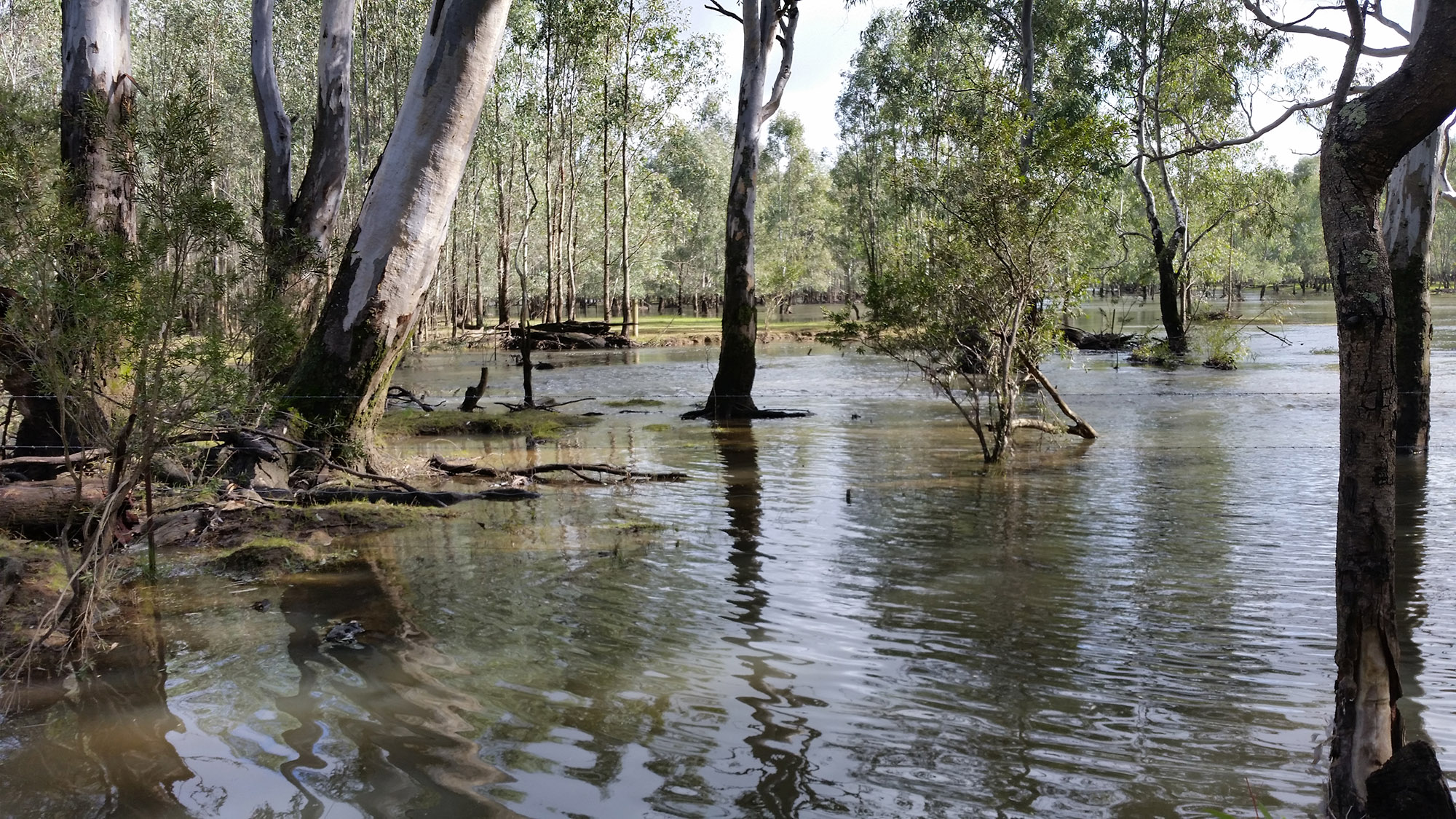
Understanding what drives food webs, and how environmental flows can
boost energy in riverine ecosystems
In 2017, the Environmental Water Knowledge and Research food web theme commenced a field program that set out to examine energy pathways among three habitats of a lowland river floodplain – wetlands, anabranches and the river channel. The work was carried out on the Ovens River in Victoria, and the chief objectives were to determine […]
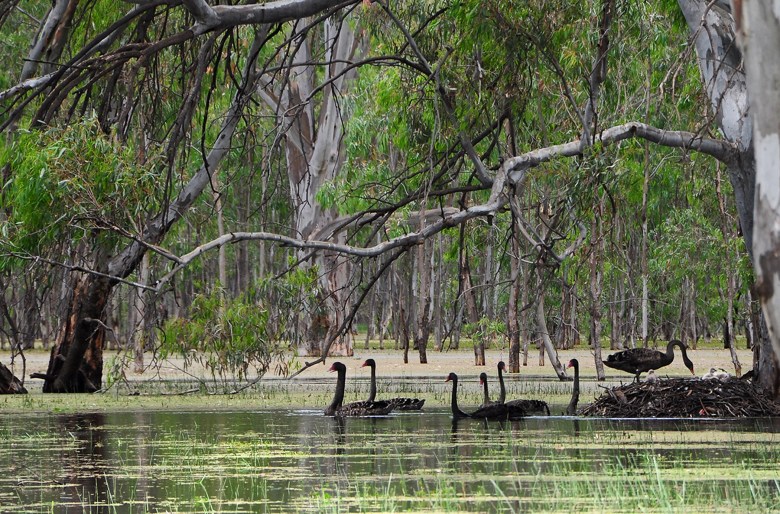
Spatial tool to assist with water management decisions in the Murray-Darling Basin
Image: Young swans leaving their nest. the breeding event was in response to a flood which is critical to support biodiversity. Photo credit: Tanya Doody The Challenge A new tool, based on ground observations of riparian woody vegetation evapotranspiration has been developed using remote sensing to aid water accounting and management in the Murray-Darling Basin. […]
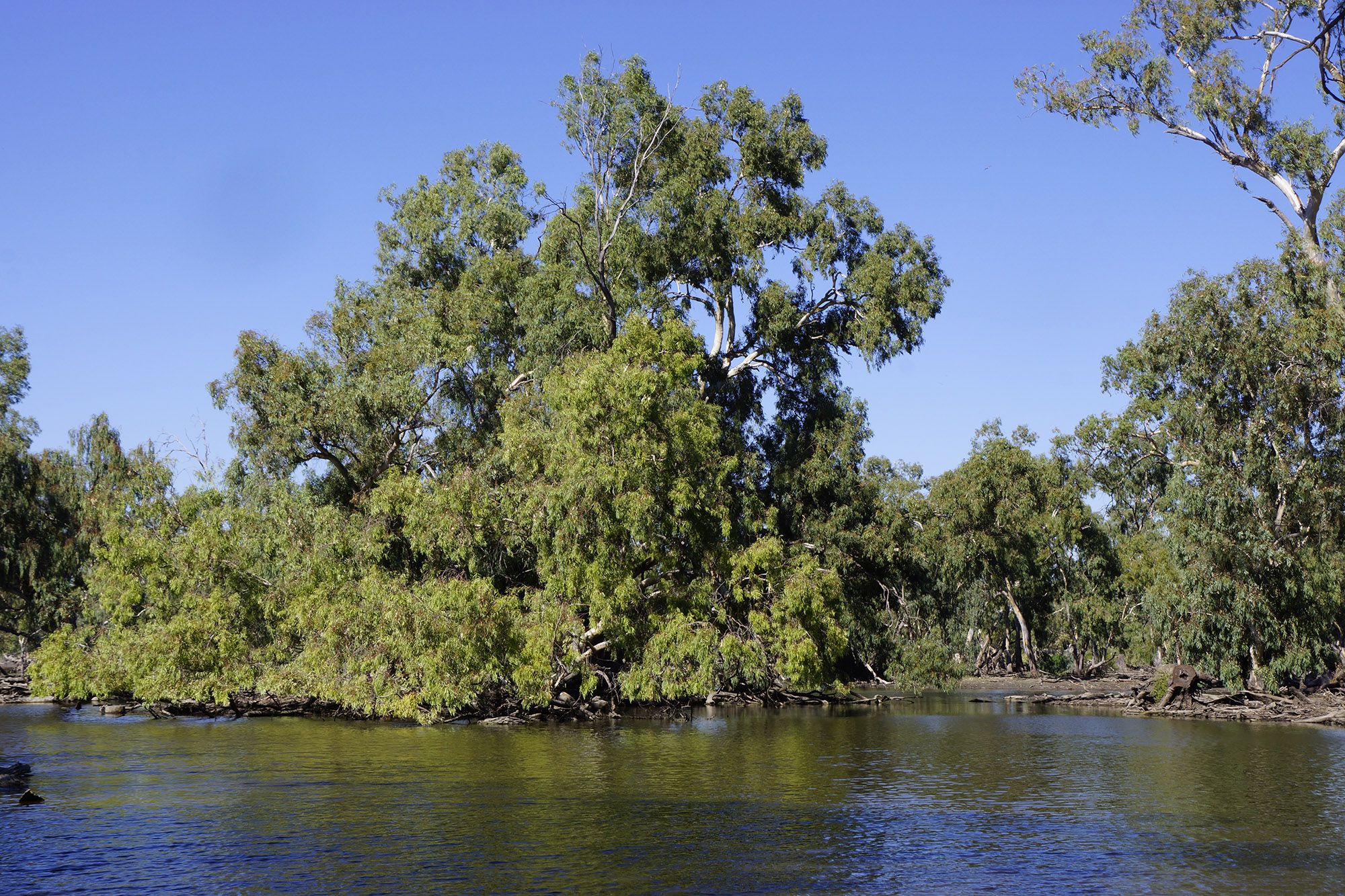
Response of riparian vegetation to drought and flood
The Challenge In the past, estimates of water requirements of floodplain trees were based on past hydrology and inundation trends rather than quantitative measurements to understand how trees use water (when, where from in the soil profile) and the drivers of tree condition. During the Millennium Drought, more than 70% of iconic red gum stands […]
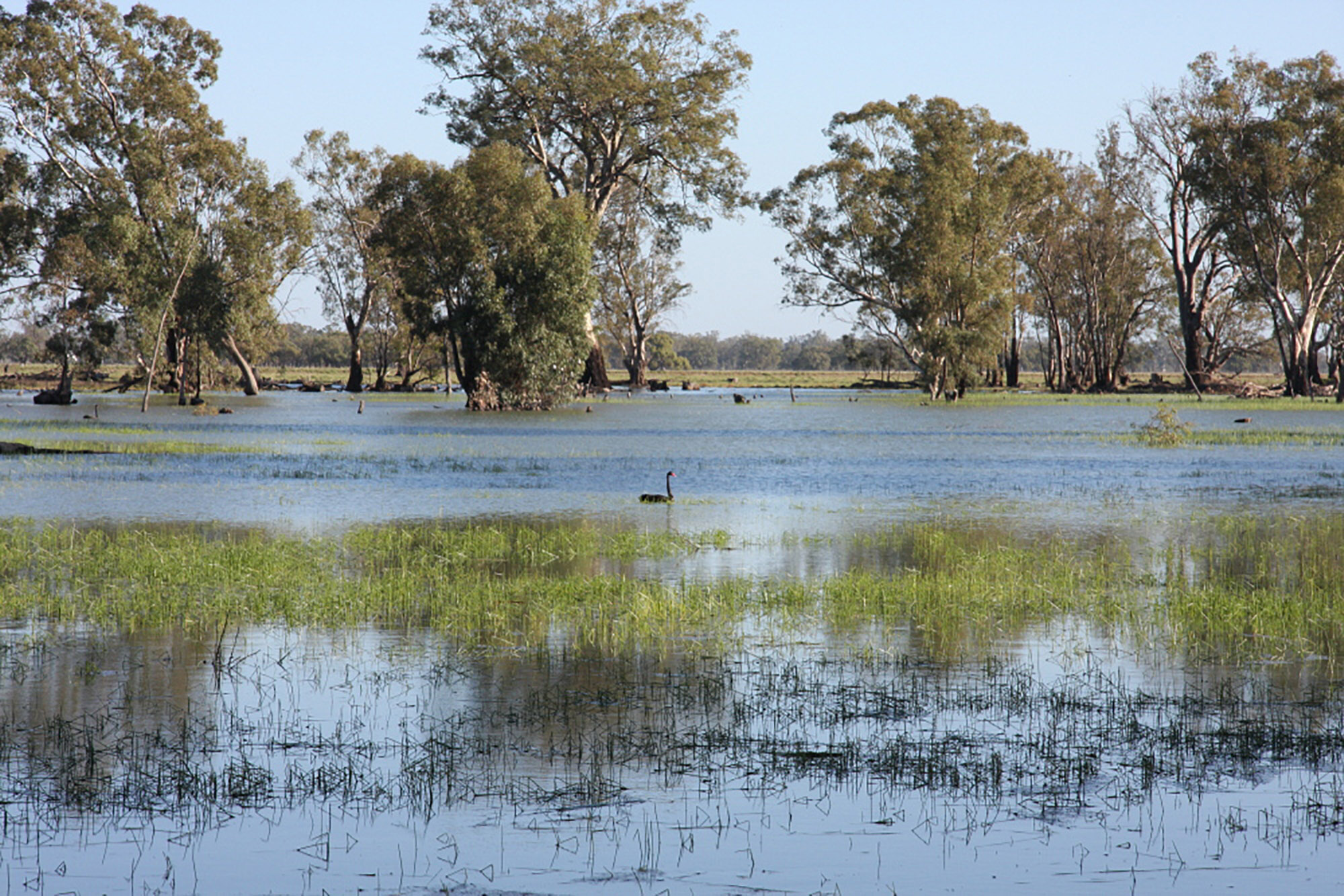
Unique, diverse and complex: The ever-changing face of wetland vegetation
Wetland vegetation is a critical component of both aquatic and terrestrial ecosystems. It provides habitat for a large array of animals and supports a wide range of ecological functions. Basin-scale monitoring and research projects are providing insights into just how diverse, unique and complex wetland plant communities are at a landscape scale. Floodplain wetlands in […]
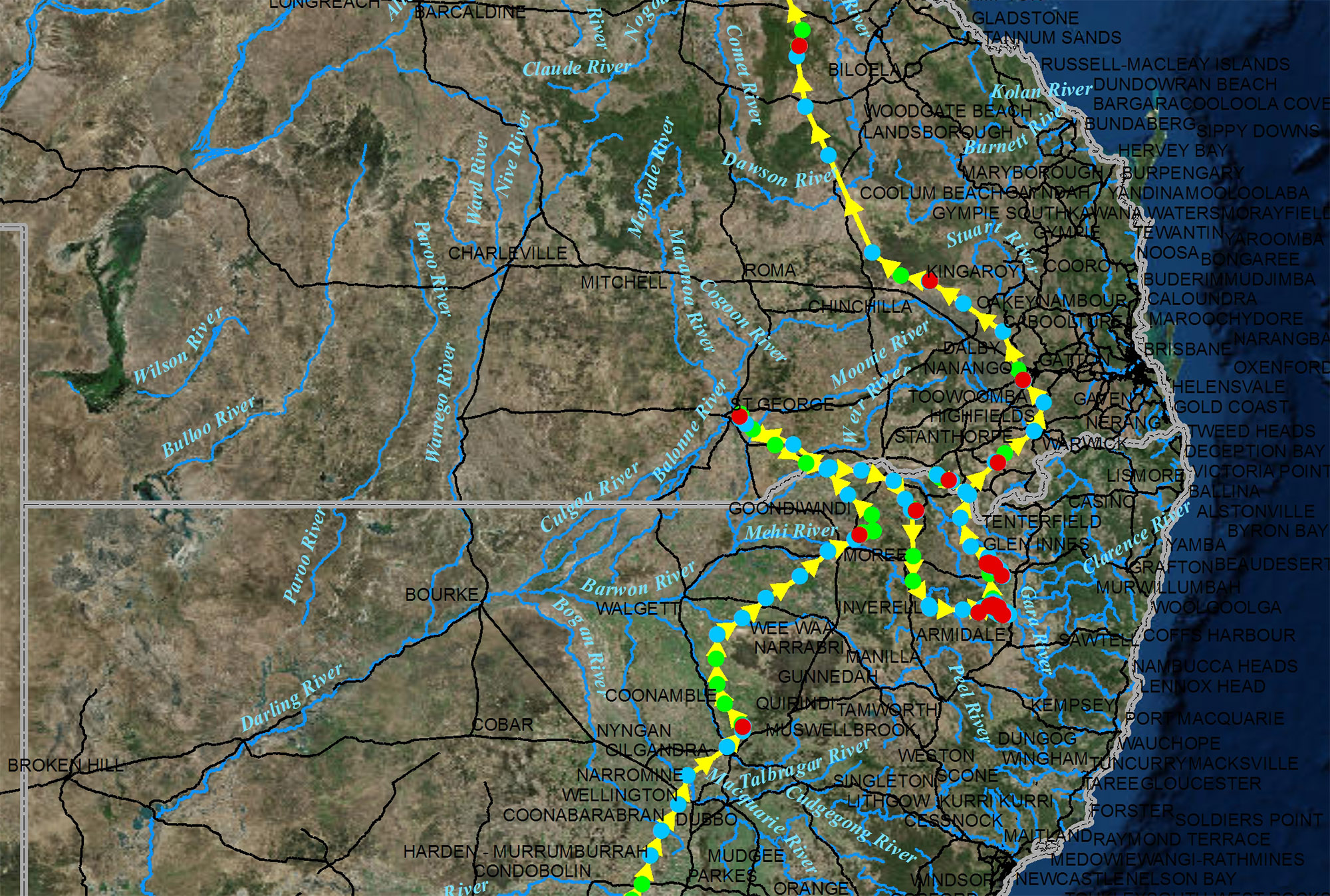
Waterbird movements and habitat choices
This story discusses work undertaken during the Environmental Water Knowledge and Research (EWKR) project, and is re-published from the EWKR website. Author: Heather McGinness Gaia, Elvis, and Elf are more than just waterbirds — they’re birds sporting lightweight GPS mini-backpacks for the sake of science. But why? With waterbird populations in decline across the Murray-Darling […]
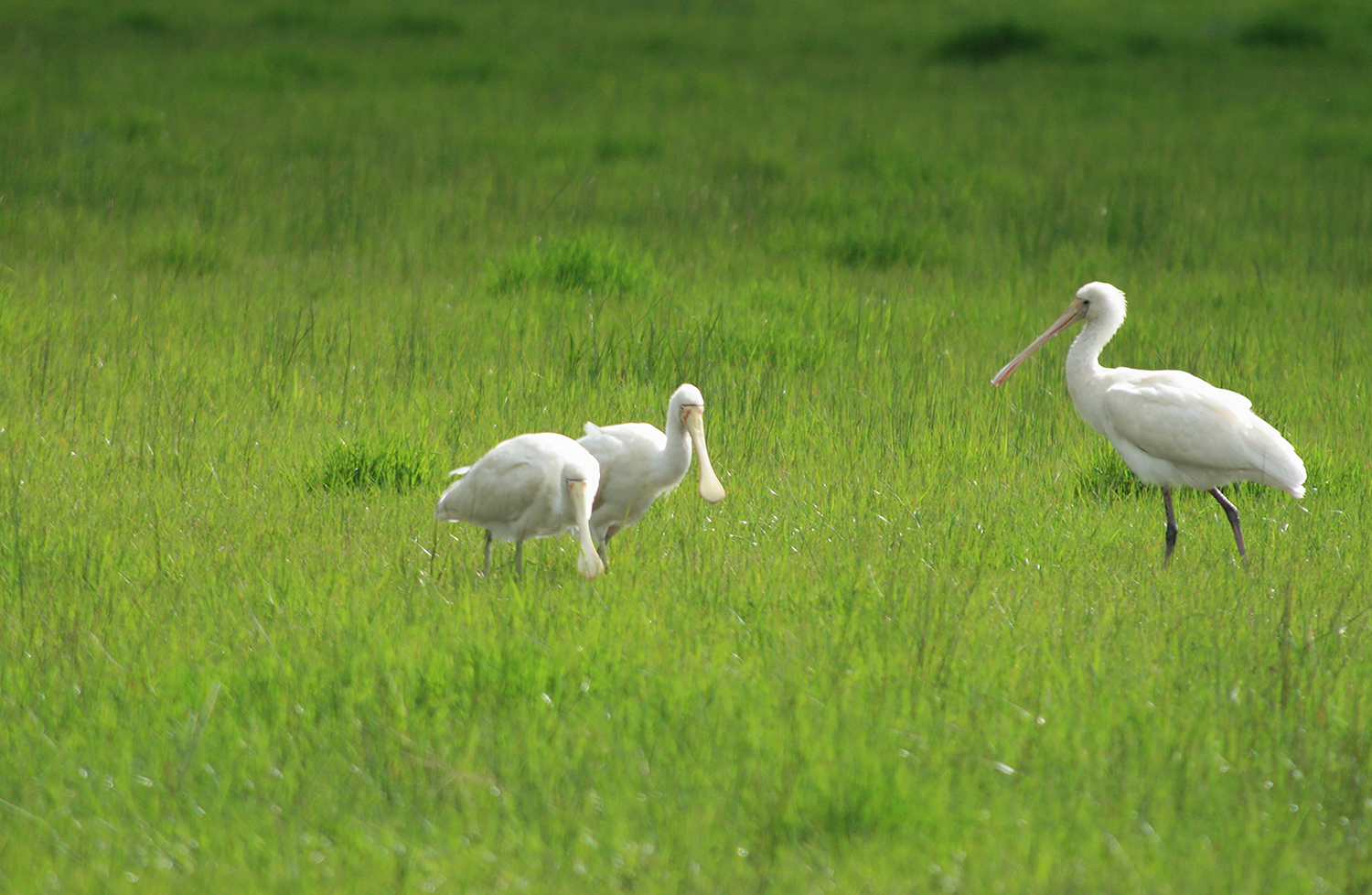
What’s for dinner? Understanding waterbird chick energy requirements
This story discusses work undertaken during the Environmental Water Knowledge and Research (EWKR) project, and is re-published from the EWKR website. Authors: Julia Mynott, Heather McGinness and Lauren O’Brien Colonial-nesting waterbirds such as ibis and spoonbills, are a unique part of Australian ecosystems and may come together in huge colonies, ranging from tens of thousands, […]
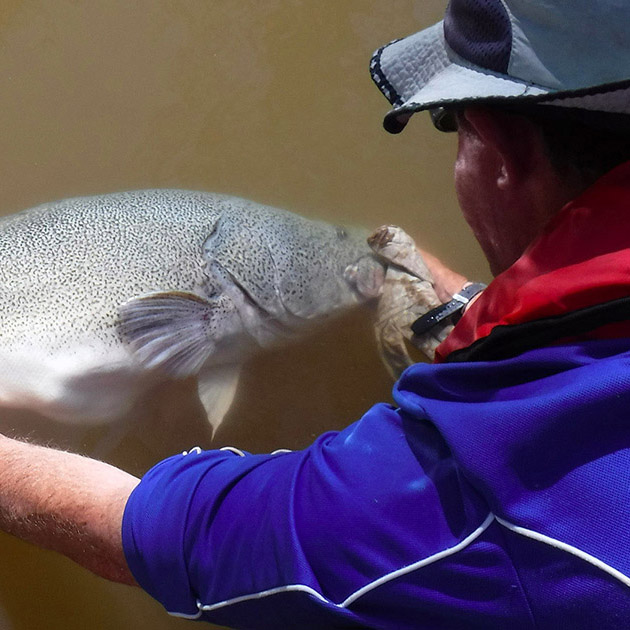
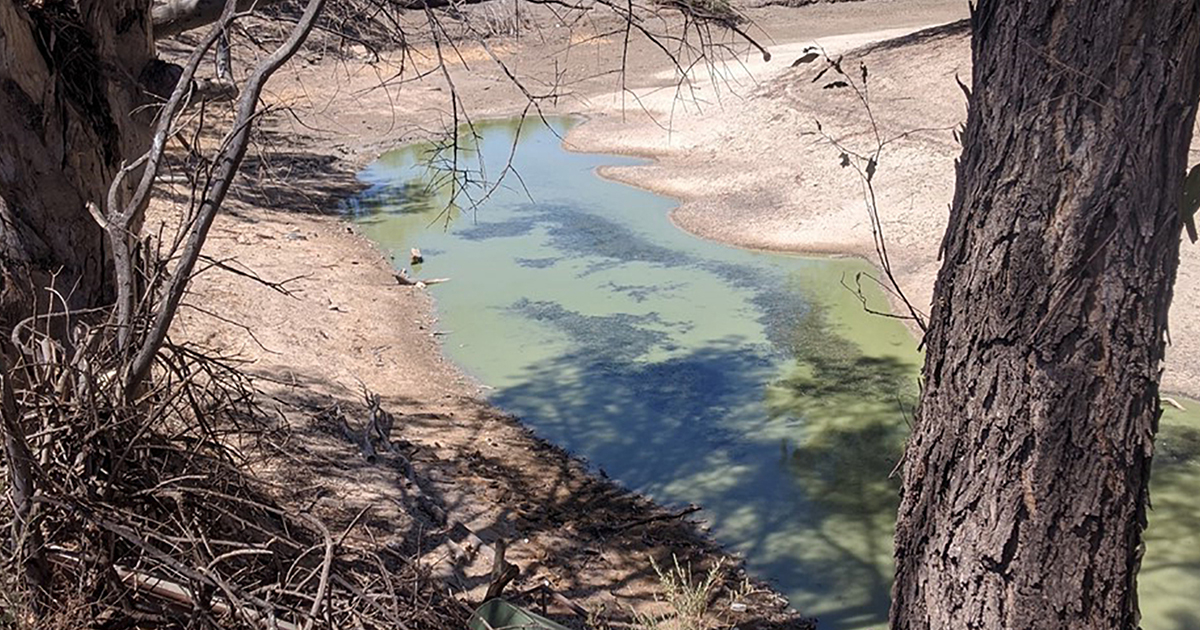
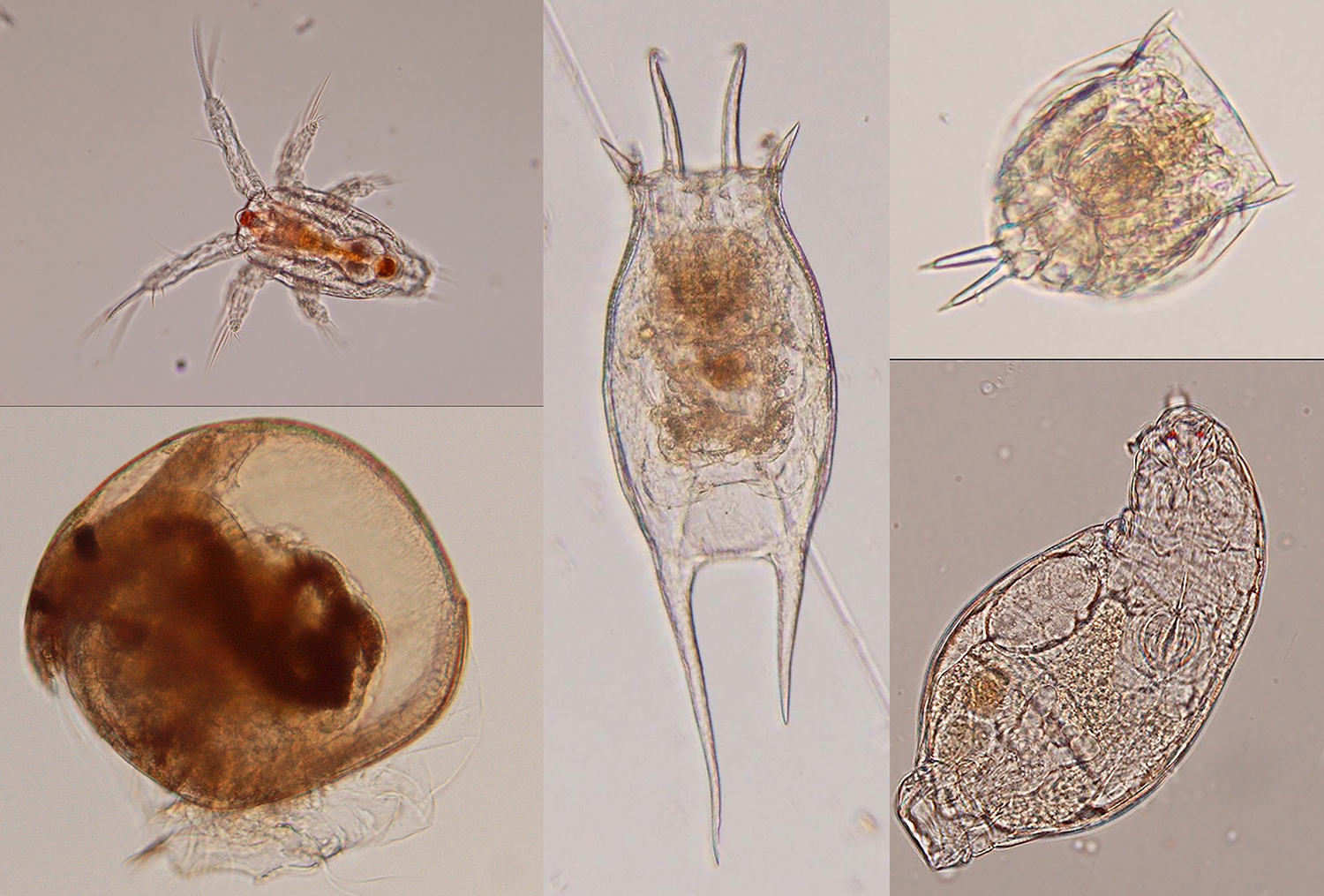
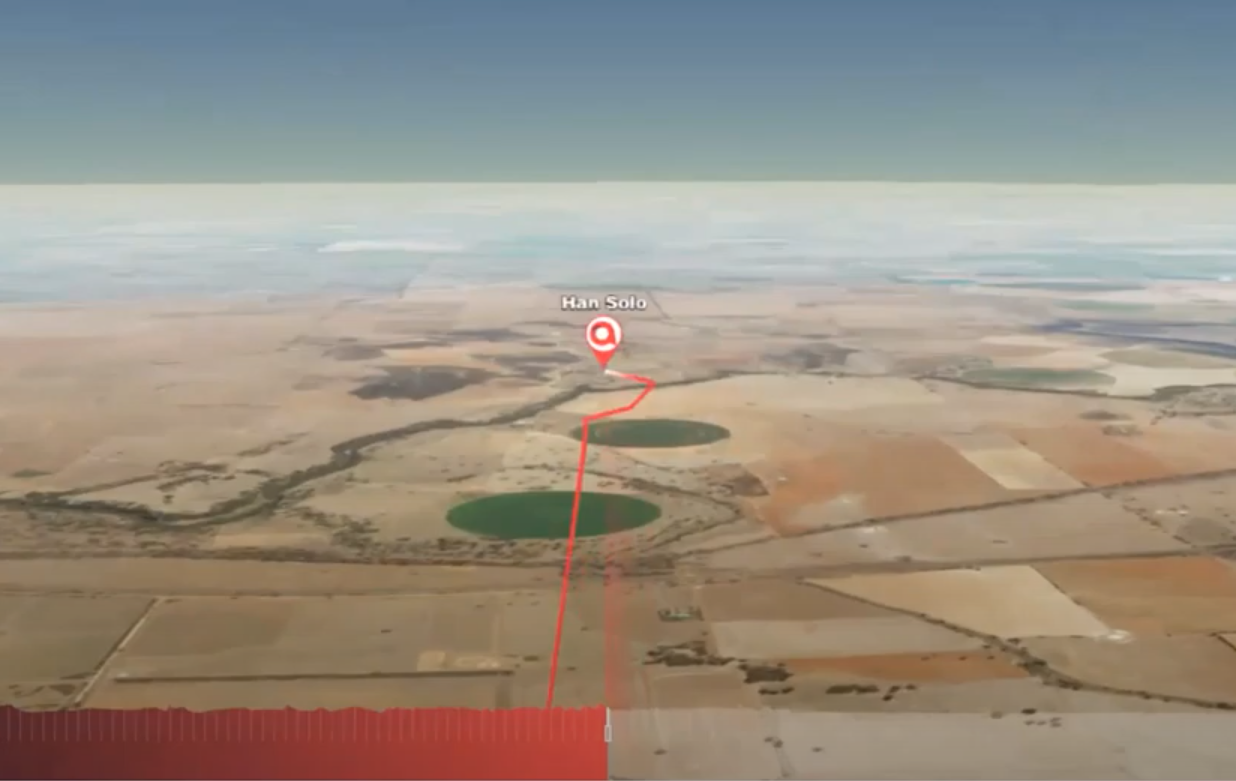



Recent Comments